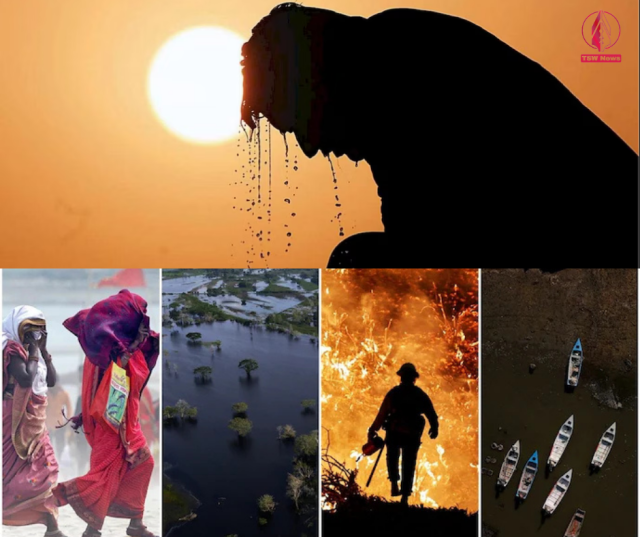Global Death Toll and Displacement Rise from Extreme Weather in 2024
- Posted on December 27, 2024
- News
- By Arijit Dutta
- 66 Views
In 2024, climate change drove 26 extreme weather events, killing 3,700 people and displacing millions. Prolonged heat, floods, and storms intensified, with scientists urging a global shift to renewable energy to prevent worsening impacts.

A new report by World Weather Attribution (WWA) and Climate Central highlights the devastating impact of extreme weather in 2024, with at least 3,700 deaths and millions displaced globally. The study examined 26 significant weather events driven by human-induced climate change, part of 219 that met the threshold for climate-linked intensity.
The report underscores a startling reality: climate change has contributed to 41 extra days of dangerously high temperatures in 2024. These days represent the top 10% warmest globally from 1991 to 2020, exposing millions to prolonged periods of extreme heat. Scientists warn that without a swift transition away from fossil fuels, these dangerous conditions will continue to escalate.
Regions like Kerala, India, witnessed extreme rainfall, while catastrophic floods in Sudan, Nigeria, and neighboring countries accounted for over 2,000 deaths. Additionally, heatwaves, wildfires, and destructive storms such as Hurricane Helene and Typhoon Gaemi wreaked havoc worldwide. The Amazon endured an unprecedented drought, exacerbated by climate change’s growing dominance over natural climate phenomena like El Niño.
Experts caution that if global warming reaches 2°C by the 2040s or 2050s, extreme weather events may become an annual norm. Friederike Otto, a senior climate scientist at Imperial College London, stressed the urgency of adopting renewable energy and halting deforestation, emphasizing that available solutions must be prioritized over speculative technologies like carbon dioxide removal.
Also Read: 72-Hour Blockade in Katra Over Vaishno Devi Ropeway Project Triggers Protests and Pilgrim Disruption
As climate change increasingly reshapes global weather patterns, the call for immediate, coordinated global action has never been more pressing. Scientists advocate for systemic changes to avert further loss of life and displacement in the years ahead.




